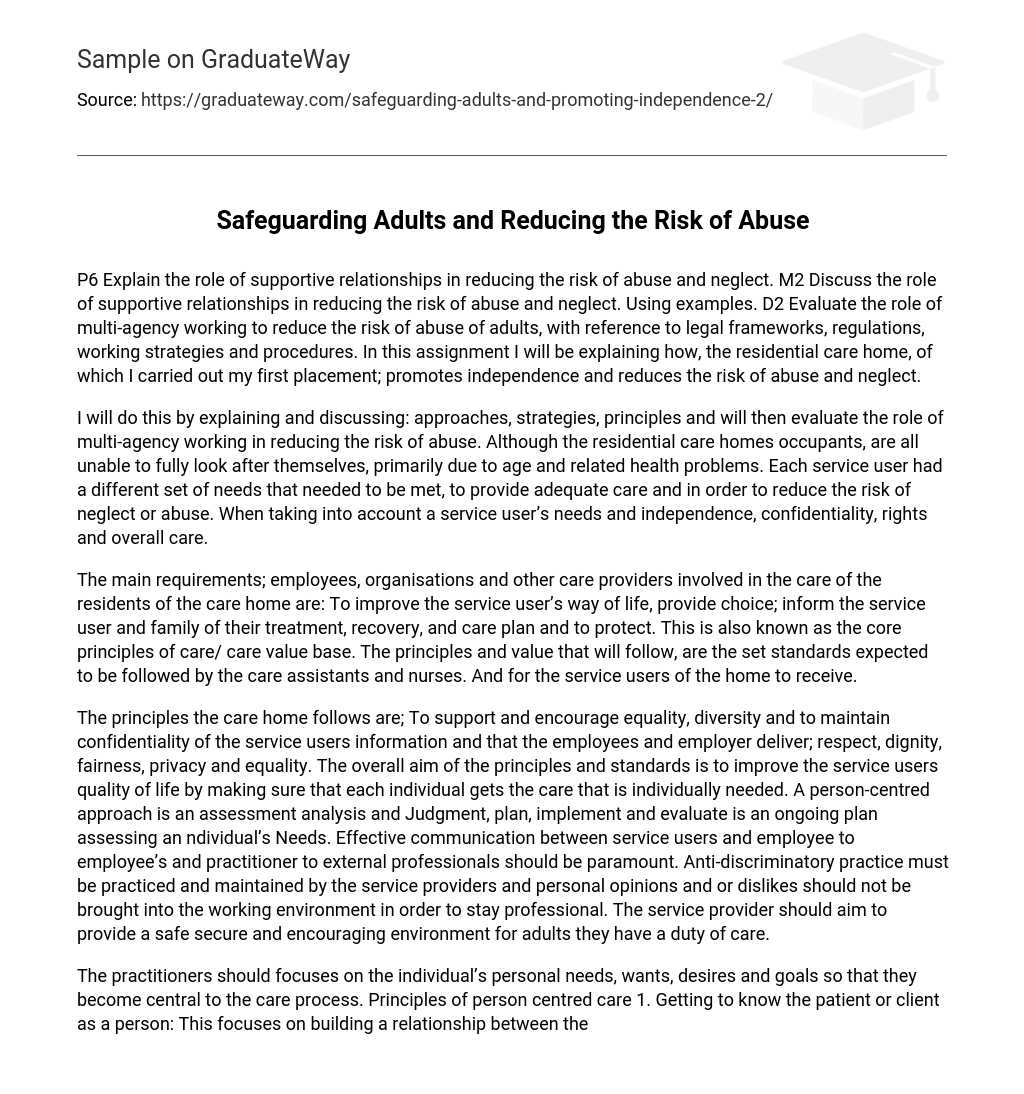In this assignment, I will discuss the importance of supportive relationships in mitigating the likelihood of abuse and neglect (P6). Furthermore, I will provide examples to illustrate how supportive relationships can reduce the risk of abuse and neglect (M2). Moreover, I will assess the effectiveness of multi-agency collaboration in preventing adult abuse by considering legal frameworks, regulations, working strategies, and procedures (D2). Specifically, I will examine my first placement experience at a residential care home and analyze how it fosters independence while minimizing the risk of abuse and neglect.
To mitigate the risk of abuse, I will address various aspects such as approaches, strategies, principles, and the importance of multi-agency working. The individuals residing in residential care homes face limitations in self-care due to age and health issues. Providing suitable care and preventing neglect or abuse requires meeting their distinct needs while considering factors like independence, confidentiality, rights, and overall well-being.
The main requirements for employees, organizations, and other care providers involved in the care of residents in a care home are to enhance the quality of life for service users, offer them choices, inform both the service user and their family about their treatment, recovery, and care plan, as well as guarantee their protection. These requirements are also referred to as the core principles of care or care value base. These principles and values act as the established standards that caregivers and nurses are expected to follow in order to deliver high-quality care for service users within the home.
The care home is dedicated to upholding principles such as supporting and promoting equality, diversity, and safeguarding service users’ confidentiality. Both employees and employers are expected to adhere to respect, dignity, fairness, privacy, and equality. These principles aim to enhance the quality of life for service users by providing personalized care. A person-centered approach involves assessing, analyzing, evaluating, planning, implementing, and reviewing each individual’s needs. Effective communication between service users and staff members is crucial. Practitioners must also maintain effective communication with external professionals. Service providers must follow anti-discriminatory practices while refraining from bringing personal opinions or dislikes into the work environment in order to uphold professionalism. The duty of care for service providers includes establishing a safe and supportive environment for adults.
The primary focus for practitioners should be on addressing the individual’s personal needs, wants, desires, and goals to make them central to the care process. Person centred care principles involve:
- Getting to know the patient or client as a person: This involves building a relationship between the clinician and the patient/client and carers. Health professionals should strive to understand the person beyond their diagnosis.
- Sharing power and responsibility: This involves respecting preferences and involving the individual in decision-making.
The approach involves involving patients / clients in goal setting, care planning, and decision making regarding care, treatment, or results. Accessibility and flexibility concentrate on meeting individual needs by considering values, preferences, and expressed needs. Further, it emphasizes providing timely, comprehensive, and accurate information in a way that patients / clients can comprehend, enabling them to make choices regarding their care.





